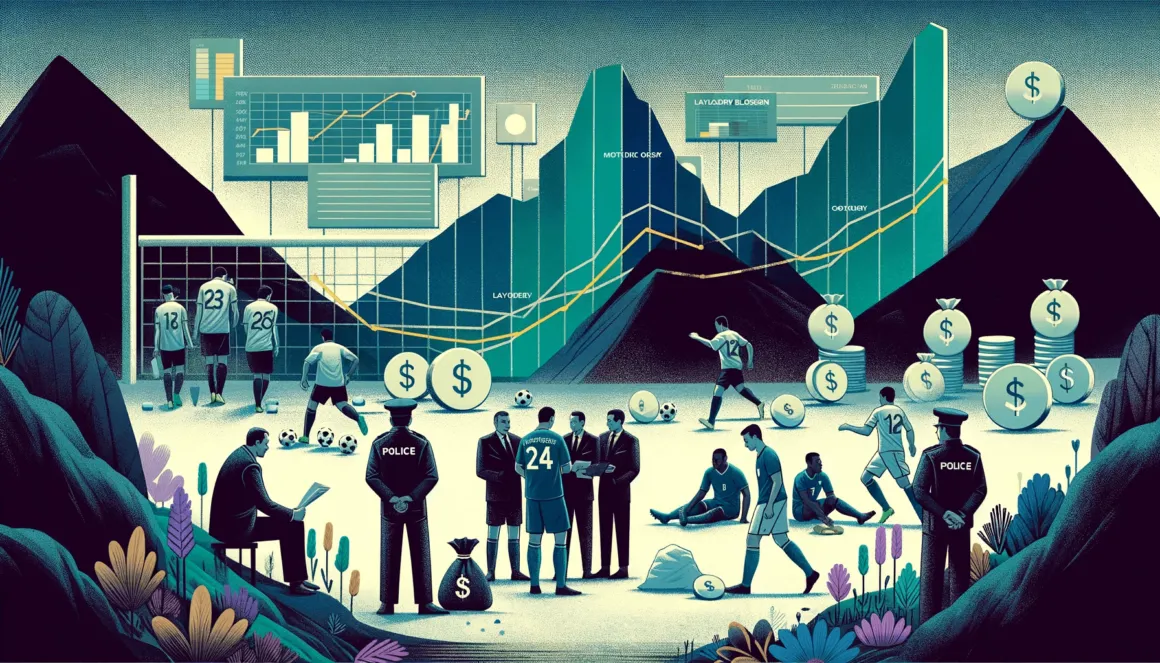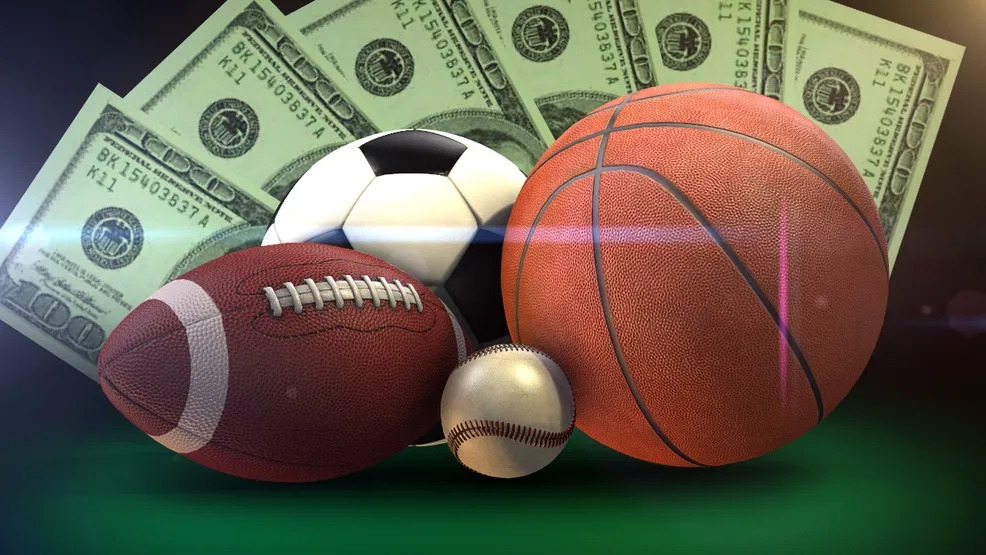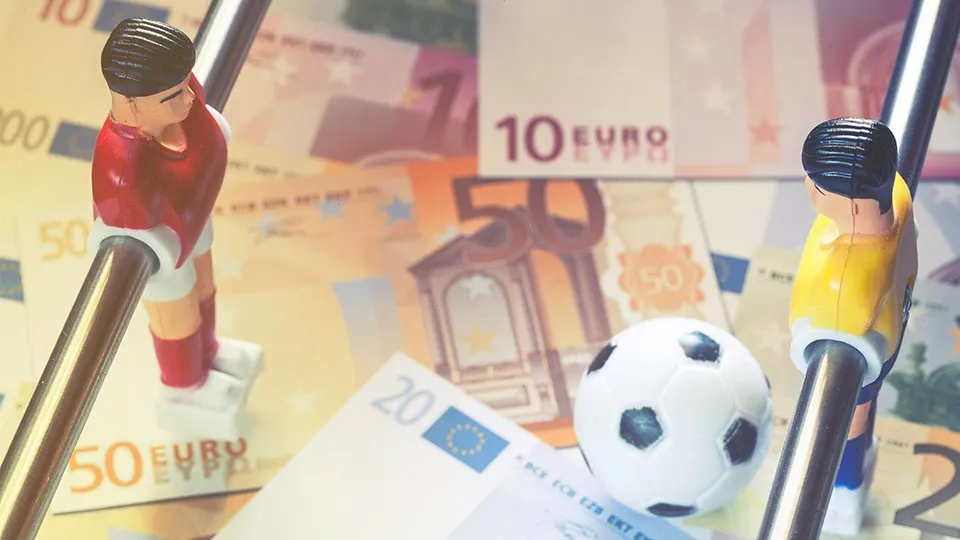Corruption has become a widespread issue in many aspects of society, including sports. It is defined as an abuse of power for personal gain, and it can take various forms such as bribery, match-fixing, and doping. The prevalence of corruption in sports has caused significant harm to the integrity and fairness of competitions, leading to public outrage and loss of trust in sports organizations. In this article, we will delve into the statistics of corruption in sports and its impact on the industry.

Overview of Corruption in Sports
According to PlayToday, a blog dedicated to providing insights and analysis on topics related to sports, the global sports betting market was valued at $85 billion in 2019 and is expected to grow to $155 billion by 2024. This rapid growth has also brought about an increase in corruption cases in sports, particularly in betting-related activities. In fact, research conducted by the International Centre for Sport Security (ICSS) estimates that around $1 trillion is wagered worldwide each year, and approximately 2-5% of that amount is believed to come from illegal sources.
The most common form of corruption in sports is match-fixing, which involves manipulating the outcome of a game through bribery or other means. According to a report by the Council of Europe’s Group of States against Corruption (GRECO), football, tennis, and basketball are the sports most affected by match-fixing. Moreover, the rise of online betting platforms has made it easier for individuals to place bets on sports events, creating opportunities for corrupt practices.
Apart from match-fixing, doping is another prevalent form of corruption in sports. It involves the use of banned substances or methods to enhance an athlete’s performance, giving them an unfair advantage over their competitors. The World Anti-Doping Agency (WADA) reported that there were 1,804 doping violations in 2019, with athletics and cycling being the sports with the most cases. Doping not only undermines the principles of fair play but also poses a serious threat to the health and well-being of athletes.
Factors Contributing to Corruption in Sports

There are several factors that contribute to the prevalence of corruption in sports. One of the main drivers is the high financial stakes involved in sports events. The large sums of money at stake can tempt individuals to engage in corrupt practices to gain an advantage or make a quick profit. Additionally, inadequate regulations and enforcement of anti-corruption measures also play a significant role in enabling corrupt activities to thrive in the sports industry.
Moreover, the pressure to win and the intense competition in sports can also lead to unethical behavior. Athletes, coaches, and team officials may feel compelled to resort to corrupt practices to achieve their desired results, especially when their livelihoods and reputations are on the line. This pressure is further exacerbated by the media and fans, who often place unrealistic expectations on athletes and teams to perform exceptionally.
The lack of transparency and accountability within sports organizations also contributes to the persistence of corruption in sports. Many sports governing bodies are run by a small group of officials, making it easier for them to engage in corrupt activities without being detected. The lack of checks and balances allows these individuals to operate with impunity and avoid facing consequences for their actions.
The Impact of Corruption in Sports
The impact of corruption in sports goes beyond the sporting industry itself and has far-reaching consequences for society as a whole. Firstly, it undermines the integrity and fairness of sporting events, casting doubt on the authenticity of results and causing a loss of trust in the industry. This loss of trust can have a ripple effect, resulting in decreased fan support, sponsorship deals, and broadcast rights, all of which contribute significantly to the revenue of sports organizations.
Moreover, corruption in sports can also have a detrimental effect on the personal and professional development of athletes. Those who engage in corrupt practices to further their careers are at risk of facing legal repercussions, damaging their reputation, and even being banned from competing in future events. On the other hand, athletes who have fallen victim to corrupt activities such as match-fixing may suffer from mental health issues, loss of income, and damage to their professional reputation.
The impact of corruption in sports is not limited to the industry itself but can also have serious economic implications. For example, when a team or athlete is found guilty of engaging in corrupt practices, their sponsors and partners may withdraw their support, resulting in financial losses for both parties. Furthermore, the decrease in fan attendance and interest in sports events can lead to a decline in tourism and revenue for host cities and countries.
Measures Against Corruption in Sports
In recent years, there has been a growing awareness of the issue of corruption in sports, and efforts have been made to combat it. Many sports organizations have implemented anti-corruption measures, including codes of conduct, background checks, and increased transparency in their operations. For instance, the International Olympic Committee (IOC) has established an Integrity Betting Intelligence System, which monitors betting patterns and alerts officials of any suspicious activity.
Furthermore, collaborations between sports organizations, law enforcement agencies, and government bodies have been formed to address the problem of corruption in sports more effectively. One notable example is the establishment of the International Partnership against Corruption in Sport (IPACS), which aims to enhance cooperation and coordination among its members to prevent, detect, and investigate corruption in sports.
Governments have also taken action to combat corruption in sports by implementing laws and regulations to criminalize corrupt acts in the sporting industry. For instance, the Council of Europe’s Macolin Convention, which was ratified by 36 countries as of October 2020, aims to combat match-fixing through the adoption of preventive measures and the prosecution of those involved in corrupt activities.
Ethical Challenges in Addressing Corruption in Sports

Despite the efforts made to tackle corruption in sports, it remains a persistent issue. One of the main challenges faced in addressing this problem is the lack of uniformity in anti-corruption measures and laws across different countries. This creates loopholes for corrupt individuals to operate freely in certain regions where regulations are lax or non-existent.
Moreover, there is also a reluctance among sports organizations to report incidents of corruption due to fears of damaging their reputation and losing revenue. The commercialization of sports has put immense pressure on these organizations to maintain a positive image, leading them to turn a blind eye to instances of corruption within their ranks.
Another ethical challenge in addressing corruption in sports is the role of sponsors and media in perpetuating this issue. Sponsors are often drawn to partner with successful teams and athletes, which creates an incentive for them to engage in corrupt practices to achieve results that will attract sponsors. Similarly, the media plays a significant role in shaping public perception and generating interest in sporting events, sometimes at the expense of ethical considerations.
Conclusion
Corruption in sports is a complex issue that requires a multi-faceted approach to address effectively. The statistics surrounding this problem are alarming, and its impact goes beyond the sporting industry. It affects the integrity of competitions, the well-being of athletes, and has economic consequences for various stakeholders. However, with the implementation of stricter regulations, collaborations between sports organizations and law enforcement agencies, and increased awareness, we can work towards a cleaner and more transparent sporting environment. As fans, it is crucial to hold sports organizations accountable for their actions and demand ethical standards in the industry. Only through collective efforts can we combat corruption in sports and preserve the integrity and fairness of the games we love.

